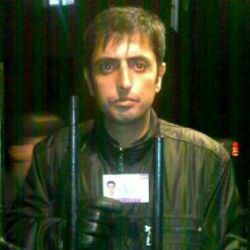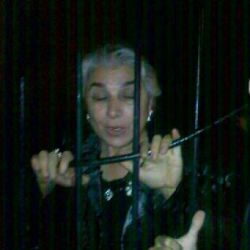A total of eight election observers, seven from the opposition block and one observer from the HR organization IRFS were detained. Seven of them were held for three hours; the observer from IRFS, Nizami Jafarov, was released after five hours in detention.
HRHN mobile group went to the court at 11pm together with a journalist from IRFS and the newspaper Azadliq. Together with IRFS, the mobile group alerted ODIHR asking it to communicate with the head of the district court.
The detained were held for three hours outdoors outside the court. HRHF, IRFS and the opposition provided them with food and water. The police did not allow the HRHN representatives to speak with the representatives of the court. Two of the detained were brought before the court. Without access to a lawyer, they were charged with disturbing the head of the polling station and lost their status as election observers.
HRHF will together with IRFS send a witness testimony which will be attached to the complaints of the detainees.
On election day, HRHN met with observers, candidates from the opposition block, and also independent and government representatives in the Sumgait region. In the evening, HRHN supported local HR organizations in District 31 of Baku, where the head of the opposition party Popular front was running.
A statement, right, issued by the HRHN mobile group concludes that the parliamentary elections in Azerbaijan cannot be considered free and fair. The mobile election monitoring group in Azerbaijan, consisting of members of the Human Rights House Network, regrets the fact that the parliamentary elections in Azerbaijan cannot be considered free and fair because of the widespread irregularities and fraudulent practices. HRHN partner Caucasus Knot also published their own article on the statement, which has been widely distributed.
-The right to freedom of expression and assembly were subject to systematic violations in the run-up and during the parliamentary elections on 7 November. it continues. -In the pre-election period, the government displayed discriminatory approach towards the realization of the right to peaceful assembly. Public meetings were widely restricted or selectively permitted and authorized in highly unfavorable areas. On the eve of the parliamentary elections, there was an increase in the number of illegal interferences by the executive authorities and law enforcement bodies into seminars and meetings conducted by civil society organizations in the regions.
In a statement from Institute for Reporters’ Freedom and Safety (IRFS), the prevention of journalists from doing their work by members of the Election Commissions, police and representatives of other executive structures during elections is strongly condemned. IRFS calls on the Azerbaijani government to take into account all the law violations that occured and to punish the persons who committed illegal actions against mass media representatives and other observers.
Another statement, issued by a group of ten different human rights NGOs, expresses concern about the violations of fundamental freedoms, amounting in their opinion to a serious blow against the democratization of Azerbaijan. The ten NGOs believe that the elections will destroy the citizen’s hope for free elections and significantly slow down the democratic process. The statement appeals to the international and foreign diplomatic missions opering in Azerbaijan to voice their concerns about the elections
A statement issued by international observers from OSCE / ODIHR, PACE and the European Parliament concludes that the elections in Azerbaijan did not mark any meaningful progress in democratic development. On the contrary, the elections were criticised for having restricted the freedoms of assembly and expression, particularly by controlling the media. In addition, the registration process is described as ‘deficient,’ and blamed for further weakening the opposition and making vibrant political discourse almost impossible. In sum, the observers found the elections to have been carried out on an uneven playing field, making it difficult for voters to make informed choices.
Finally, in an article issued by Institute for Reporters’ Freedom and Safety, further details of how different media were prevented from covering the elections properly are given. Both Liberty radio, Turan news Agency, Ayna-Zerkalo newspaper and IRFS itself were hindered.
Documents:
- HRHN mobile group’s statement on election in Azerbaijan, English
- HRHN mobile group’s statement on election in Azerbaijan, Russian
- HRHN mobile group’s statement on election in Azerbaijan, Azeri
About HRHN mobile support group:
The HRHN delegation consists of human rights defenders from Human Rights House Foundation, Norway, Article 42, Georgia and the Ukrainian Helsinki Union, Ukraine. They are in Azerbaijan to support human rights defenders and organisations during the parliamentary election.
Related links:
Profound pessimism about Azerbaijan’s elections
Detained election observers




